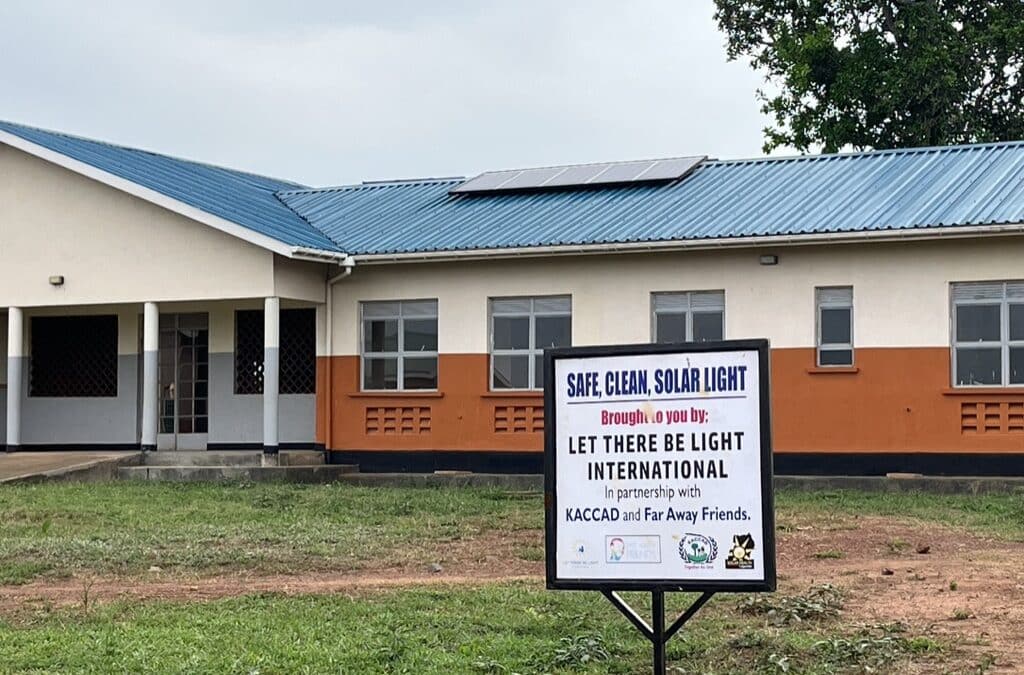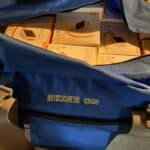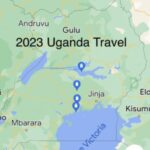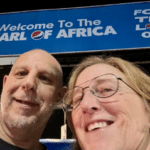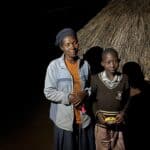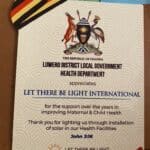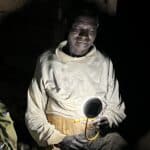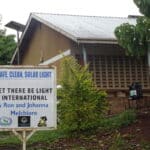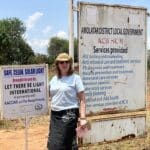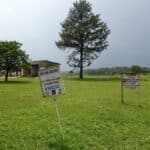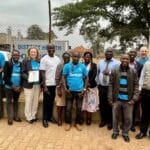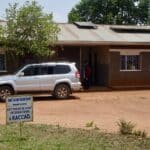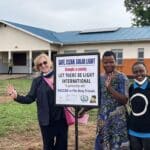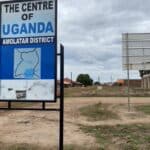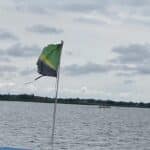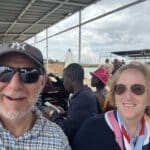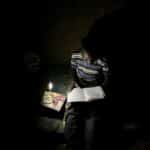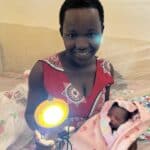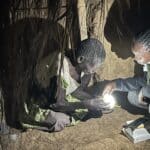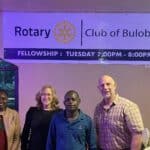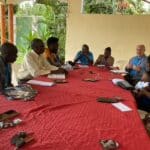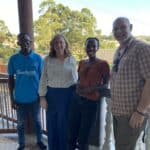Earlier this month, I traveled with LTBLI Founding Board Member (and exemplary husband), Ben, to Uganda for site visits over the course of 9 action-packed days. Unable to travel since March 2020, due to the global pandemic and then an Ebola outbreak in 2022, LTBLI had a lot of ground to cover.
Below is a short overview set 7,200 miles away about visiting 14 rural health clinics across 1,041 (often off-road) kms, meeting 50+ friends and partners, checking in on new mothers, a beautiful lake and a very large snake.
Miles to Go Before We Sleep
The trip (Buffalo – Toronto – Montreal – Brussels – Bujumbura – Entebbe – Bulenga) went off without a hitch. We were thrilled that our 3 duffels filled with donated solar lights, (thank you, Wilkinson Supply Company and MPOWERD), computers, children’s’ books, t-shirts and gifts made it, too. Coming through Customs and Immigration, I was stopped by the Border Officials. However, after I opened up one of the solar lights and explained to the Ugandan officers what we were doing and why, they actually applauded and waved us right through!
Solar Lights are Changing Lives
Thanks to our valued local partners including Solar Health Uganda (SHU) and despite a two-year lock-down, LTBLI’s solar programs continued to brighten lives and Shine On even during covid. Considered “Essential Services” in Uganda, our projects over the past 3 years included the solar-electrification of 42 frontline health clinics serving more than 425,000 people and the donation of safe solar lights to 18,000 households across Uganda, Kenya, Malawi and Rwanda, impacting 97,200 people!
Site Visits On-Deck
Hosted by SHU, we piled into a 4-wheeler with our driver, Eddie (AKA “Shortcut”) and SHU directors Derrick, Caroline and Siriman. Many of the roads were rough with deep potholes filled with water, but Ben and I quickly acclimated to our “Ugandan massages.”
Meanwhile, George Mike, our Regional Program Director, and Gabriel, our Artist-in-Residence, held down the fort in Bulenga, our Ugandan HQ on the outskirts of Kampala.
On the Road
Over the course of the first 7 days, we visited 14 remote health clinics solar-electrified by LTBLI during the pandemic, 5 off-grid households that had received solar lights and 4 rural schools. We also participated in regional meetings at 2 District Offices with health, education and administrative officers responsible for the clinics and schools. Our field work included inspecting solar systems, interviewing midwives and nurses, reviewing procedures, retraining staff and strategic planning for future solar projects.
Across the Lake (but, Thankfully, No Snake)
Although our SHU team has visited the area a few times, LTBLI had never journeyed to the Northern District of Amolatar. Thanks to our local partners, Global Leaders Primary School and Far Away Friends, our team spent 3 days in this beautiful but resource-constrained region. We ate fresh tilapia and met welcoming solar participants including new mothers, students and elders.
We also heard about the 30-year-old, 30 foot long (seriously?!) python who lives in the area, but thankfully we did not meet her as we walked through the tall grasses. I’m fairly certain that my hushed but obsessive chanting of: “No python, no python, no python,” ensured a snake-free visit. Phew!
A Partners Workshop and Strategy Meetings Completed our Visit
The last 2 days were spent back in Bulenga where we hosted an LTBLI Partners’ meeting to launch a “Shine On” learning platform. We discussed how our 12 partners in 4 countries can share best practices and project manuals, learning while doing together. Finally, in partnership with Solar Health Uganda, we worked on sustainability planning and solar projects for 2023, focusing on leaving no one behind as we Let There Be Light International!

